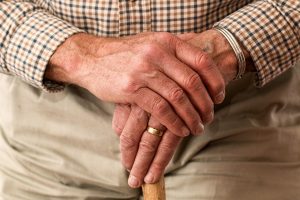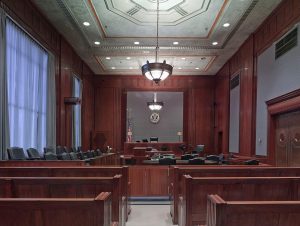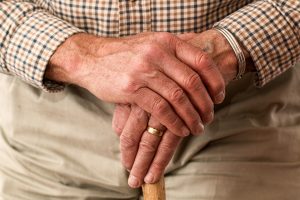 Nursing home abuse and neglect is unfortunately all too common across the United States today. When nursing homes and their staff mistreat patients or fail to provide them with the proper care, patients can suffer serious injuries and even death. Fortunately, nursing home abuse and negligence are compensable under Georgia law.
Nursing home abuse and neglect is unfortunately all too common across the United States today. When nursing homes and their staff mistreat patients or fail to provide them with the proper care, patients can suffer serious injuries and even death. Fortunately, nursing home abuse and negligence are compensable under Georgia law.
If you or a close family member has been injured because of abuse or neglect in a nursing facility, let the experienced attorneys at Slappey & Sadd, LLC assist you. Our skilled lawyers represent injured nursing home patients everywhere in Georgia, including in Fulton County, DeKalb County, Gwinnett County, Muscogee County, Newton County, Richmond County, Troup County, Walton County, and Whitfield County. Feel free to give us a call at 404.255.6677, or contact us online, for assistance with your legal matter.
Types of Nursing Home Abuse and Neglect
 Georgia Injury Lawyers Blog
Georgia Injury Lawyers Blog


 June 15th
June 15th It’s well documented that the coronavirus can be life-threatening for the elderly and those whose immune systems are already impaired. As a result, nursing homes and other facilities frequented by the elderly must take extra precautions to minimize exposure to their residents and clients. The truth is, however, that these facilities face a number of challenges even without the current epidemic. Sadly, many nursing homes fail to keep their residents safe and do not provide the care that they promised.
It’s well documented that the coronavirus can be life-threatening for the elderly and those whose immune systems are already impaired. As a result, nursing homes and other facilities frequented by the elderly must take extra precautions to minimize exposure to their residents and clients. The truth is, however, that these facilities face a number of challenges even without the current epidemic. Sadly, many nursing homes fail to keep their residents safe and do not provide the care that they promised.  In any personal injury case, you need to prove your case, and in many cases, this requires the testimony of an expert witness. The phrase “expert witness” may sound intimidating, especially to non-lawyers. We hope to alleviate your fears, but also help you understand how a lawyer can help you with proving your claim.
In any personal injury case, you need to prove your case, and in many cases, this requires the testimony of an expert witness. The phrase “expert witness” may sound intimidating, especially to non-lawyers. We hope to alleviate your fears, but also help you understand how a lawyer can help you with proving your claim.  Elder abuse is a tragic topic – no one wants to think about our seniors suffering abuse at the hands of those who are supposed to be taking care of them. But it’s important to remember that elder abuse isn’t limited to physical abuse. Elder abuse also includes neglect.
Elder abuse is a tragic topic – no one wants to think about our seniors suffering abuse at the hands of those who are supposed to be taking care of them. But it’s important to remember that elder abuse isn’t limited to physical abuse. Elder abuse also includes neglect.